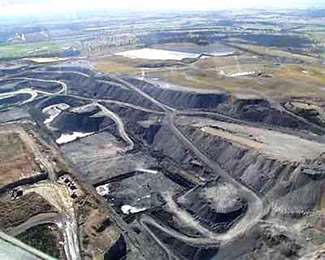
"The folly at the root of this foolish economy began with the idea that a corporation should be regarded, legally, as "a person" But the limitless destructiveness of this economy comes about precisely because a corporation is not a person. A corporation, essentially, is a pile of money to which a number of persons have sold their moral allegiance. As such, unlike a person, a corporation does not age. It does not arrive, as most persons finally do, at a realization of the shortness and smallness of human lives; it does not come to see the future as the lifetime of the children and grandchildren of anybody in particular. It can experience no personal hope or remorse, no change of heart. It cannot humble itself. It goes about its business as if it were immortal, with the single purpose of becoming a bigger pile of money.
The stockholders essentially are usurers, people who "let their money work for them", expecting high pay in return for low pay. The World Trade Organization enlarges the old idea of the corporation-as-a-person by giving the global corporate economy the status of a super government with the power to overrule nations.
I don't mean to say, of course, that all corporate executives and stockholders are bad people. I am only saying that all of them are very seriously implicated in a bad economy"
Wendell Berry: In the Presence of Fear



